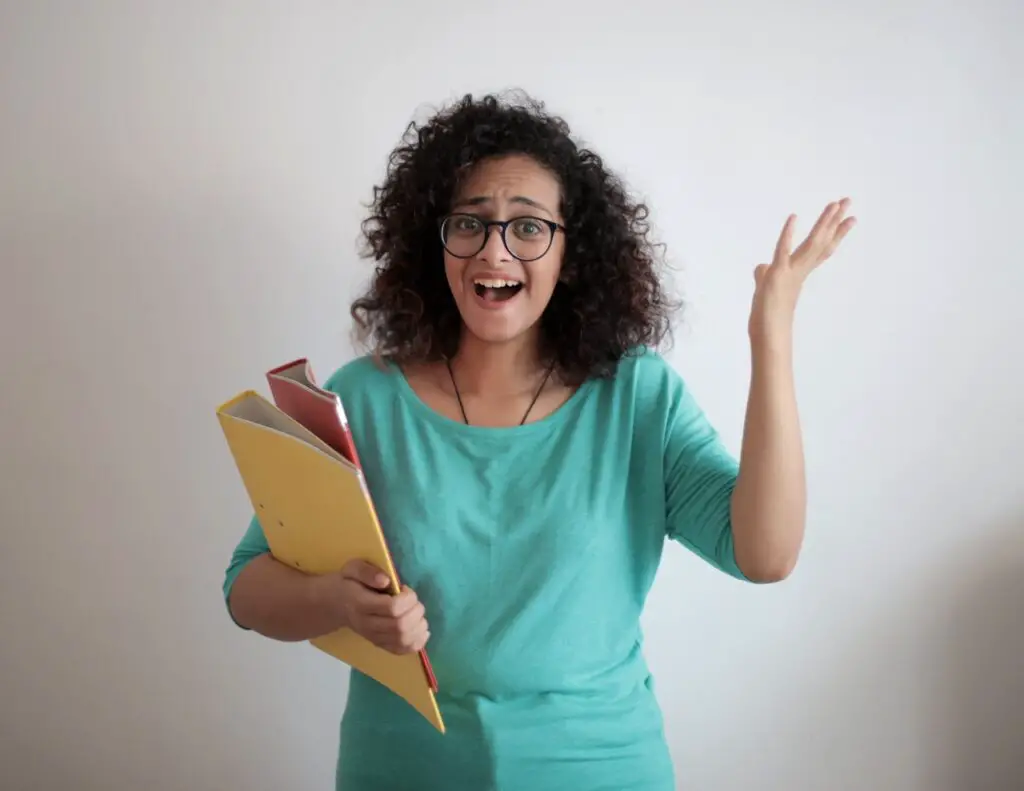Whether you’re thinking of getting your TEFL certificate and working abroad or planning to become an ESL teacher in your home country, you may be wondering what classes are like. Are they hard? Are they rewarding? Are they something you really want to get involved with?

For teachers, EFL/ESL classes are often intense and rewarding. They include a huge variety of activities, a range of group sizes, ages and English abilities. Professional relationships between teachers and students are hugely important.
I’ve taught English as a Foreign language since 2015. My experiences include teaching individuals, small groups and classes of up to 30 – adults, teenagers and young children. The majority of my classes are in person, but I’ve also taught online.
From this experience, I can tell you that no two EFL/ESL classes are the same. Each brings its own challenges and perks. However, there are some general similarities which I’ll explain to you now, then we’ll look in detail at classes with children, teenagers and adults.
If you’re thinking of becoming a TEFL teacher, I really recommend you take a look at my article Big Guide to Starting Out in TEFL: All you need to know. It takes you step-by-step through the whole process, from deciding if it’s right for you, all the way to getting your first job.
What to expect from all types of EFL/ESL class
Three things are common to almost every EFL/ESL class you can give.
1. Intensity
It’s easy to see how leading a class of 30 hyperactive children is an intense experience. You need to be on the ball at all times to keep learners engaged.
But what about individual classes with adults? They can be just as intense, but in a different way – instead of managing behaviour, you need to actively listen, process, and give feedback on what your students say.
You need to be ready to support grammar, vocabulary, and pronunciation as well as providing motivation for your students.
2. Failure
Students make mistakes. They get things wrong that you’ve just taught them, and at times, they struggle to communicate.
This is normal. Learning a language takes time and patience, just like any other skill. As a teacher, you have to manage your own frustration and support students with theirs.

3. Social interactions
A part of teaching which is often forgotten is the process of cultivating relationships with students.
That doesn’t mean making friends. It means creating a comfortable environment, learning the needs of your students and tailoring your classes to suit those needs.
In order to do this, you need to interact with your students on a human level. Picking up on social cues, managing group dynamics, and finding out what makes people tick are all key to success.
Is becoming a TEFL teacher hard? A lot depends on the route you go down and the type of person you are. Read my full article: Is TEFL Teaching Hard? A guide to whether TEFL is right for you, to find out more.
What are EFL/ESL classes with children like?
Teaching children is a totally different experience to teaching adults. Some people love classes with little kids, while others can’t stand them.
With children up to around 10-12 years old, group classes tend to be chaotic and physical.
Singing songs, playing games, drawing pictures, and dancing are all great ways of getting children interested. There’s time for quiet book work, too, but you can’t rely on this for long periods.

Children like moving. In some cultures, school rules are strongly enforced, in others things are more relaxed. In Spain, for example, it’s impossible to get a class of 30 to sit down and work for a full hour without them getting restless – even ten minutes is stretching your luck!
In my experience, embracing and harnessing their energy is the best way to go. If you can channel children’s relentless activity into memorable learning without things getting out of control, you’re doing it right.
For some ideas on how to channel that dynamism, check out my list of 9 High Energy EFL/ESL Games for Boosting Vocabulary
For one-on-one classes and small groups, things depend on the individuals in question. It may take shy students several classes to open up, while others will be jumping up and down on day one.
Online classes are short. Half an hour is usually the optimum time to have some conversation and play some games before the kids get tired.
What are EFL/ESL classes with teenagers like?
Teenagers are a scary bunch. We can all imagine a class full of surly, sarcastic fifteen-year-olds who have no intention of listening to the teacher and instead want to impress their friends. Nightmare.
School classes with teenagers can be a constant battle if you can’t get them on your side. Saying that, there’s a good portion of kids at this age who are hard-working, kind and charismatic, it’s just those traits often get lost in large groups.

Classes tend to be sedentary and quiet. Teachers rarely trust teenage students with fun activities, and there’s more emphasis on exams and serious study.
For me, private classes with individuals or small groups of teenagers are fantastic. You see the more positive sides of their personalities and, as they rapidly improve their English, you can watch them develop into wonderful people.
If you can break the moody exterior, you’ll find passion, excitement, and determination in students you never knew had it.
What are EFL/ESL classes with adults like?
It’s rare to teach adults in large classes. It can happen in universities or vocational schools, but most classes are one-to-one, or groups of up to a dozen.
In general, adults want to be there. While some may be forced to attend by their employer, the majority are paying for the classes, so they bring their own motivation. That doesn’t mean they’re all “good” students, though.
With adults, the power dynamic is often shifted in their favour, meaning it can be difficult to make them do things they don’t want to.
Most classes with adults are focused either on conversation or grammar.

Conversation classes sound easy, and in some ways they are. You don’t have to prepare elaborate activities, but you do need to be a strong active listener and give immediate, helpful feedback.
There’s a lot of mental processing going on. You have to figure out what they’re trying to say and give them the right tools to say it without halting their flow or knocking their confidence.
Grammar classes are less fun, at least from my point of view. Your students may be studying for an English certificate or trying to get better job prospects.
A lot of the time, their level is quite high, so you’ll need to be on the ball with grammar.
I’ve had questions like “what’s the difference between ‘historic’ and ‘historical'” as well as “when do we use the subjunctive mood in English?”
You may not know how to explain it in the moment they ask, but they’ll expect you to prepare something for them next time. So if you don’t know your present perfect from your past continuous, you’d best get studying!
Final thoughts
As you’ve probably realised, EFL/ESL lessons are diverse. Every class has its unique composition and needs, meaning it’s impossible to really say what EFL/ESL classes are like.

And we didn’t even discuss how things vary from country to country. For example, Japan and Spain have totally different educational cultures and expectations.
What’s true of nearly all EFL/ESL classes is they’re demanding, at times frustrating, other times rewarding, and come with a strong social factor.
And, from my experience, they’re nearly always great fun!
To learn more about becoming a TEFL teacher, you should definitely read my other articles:
Big Guide to Starting Out in TEFL: All you need to know
Is TEFL Teaching Hard? A guide to whether TEFL is right for you
What Are EFL/ESL Classes Like For Teachers?
Is TEFL Legit? Guide to trustworthy certificates and jobs
Do You Need a Degree to Work as a TEFL Teacher?
How to Pick the Right TEFL Destination: 5 steps to success
What Type of TEFL Teaching is For You? Jobs explained
What is the Best TEFL Certificate? Guide to choosing right
TEFL vs. CELTA: What’s the difference? Which is best?
10 Steps to Passing Your TEFL: Study and assignment tips
Is There an Exam for TEFL Courses? What you need to pass
Which TEFL Course Provider to Choose? Why my pick is ITTT
Is it Hard to Get a TEFL Job? Tips on finding employment






